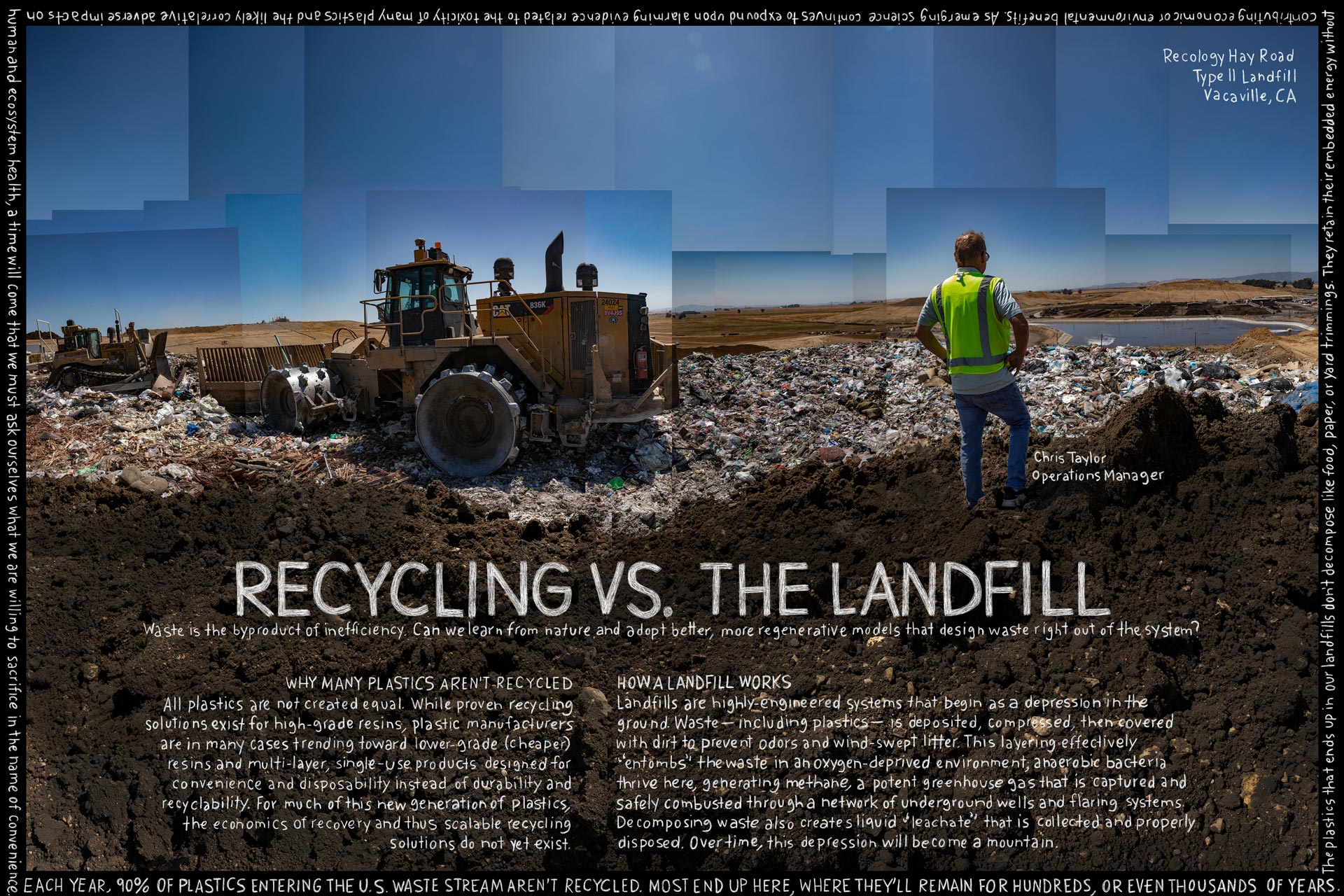In the ongoing debate between landfilling and recycling waste, each has its proponents and critics. While recycling is often touted for its environmental benefits, there are scenarios where landfills could be considered more efficient. This comprehensive guide explores how landfills can sometimes be more effective than recycling in managing waste, focusing on aspects such as cost, simplicity, energy recovery, and the ability to handle non-recyclable materials.
Introduction to Waste Management Efficiency
The efficiency of waste management strategies is crucial in our global effort to minimize environmental impact and promote sustainability. The key question, “How are landfills more efficient than recycling waste?” brings to light the complexities of our modern waste management systems. This article delves into the nuances that make landfills an efficient option under certain conditions.
Cost-Effectiveness and Simplicity of Landfills
Landfills offer a straightforward approach to waste management. Unlike the intricate processes required in recycling, landfill operations generally involve simpler, less expensive techniques. Here’s a breakdown of why landfills can be more cost-effective:
- Initial Investment: Landfills require less capital for machinery and technology compared to recycling facilities.
- Operational Costs: The ongoing expenses of running a landfill are often lower, as they require less specialized labor and less intensive technology.
- Simplicity in Operation: The process of landfilling is less complex, involving primarily the collection and burial of waste, which reduces the potential for operational inefficiencies.
Table 1: Comparative Cost Analysis of Landfill vs. Recycling
| Cost Component | Landfill | Recycling |
| Initial Setup | Lower | Higher |
| Operational Expenses | Generally lower | Generally higher |
| Labor Requirements | Less specialized | More specialized |
| Technology Needs | Basic | Advanced |
Managing Non-recyclable Waste
Not all waste can be recycled. Some materials are inherently non-recyclable due to their composition or contamination levels. Landfills serve as a critical endpoint for such wastes, ensuring environmental safety. This section outlines the types of non-recyclable materials and how landfills manage them efficiently.
Energy Recovery from Landfills
One of the notable efficiencies of modern landfills is their capability to recover energy. Methane capture technologies allow landfills to convert organic waste decomposition into valuable energy, typically in the form of electricity. This process not only mitigates greenhouse gas emissions but also contributes to the energy grid, offsetting the environmental footprint of the landfill itself.
Figure 1: Methane Capture and Energy Production Process
(A diagram here would illustrate how methane is captured in landfills and converted into energy, highlighting the closed-loop system that reduces the overall carbon footprint.)
The Environmental Impact of Landfill vs. Recycling
While recycling is beneficial for the environment, it is not without its drawbacks. This section compares the environmental impacts of both strategies, including the resource intensity of recycling processes and the potential for lower immediate impacts from landfills, especially in regions where recycling technologies and systems are not yet optimized.
Land Reclamation: A Sustainable Endgame?
Post-closure, landfills offer opportunities for land reclamation. This process involves transforming closed landfill sites into usable land, providing community benefits such as new parks, commercial developments, or even residential areas. The transformation from waste disposal to beneficial reuse represents a significant efficiency in land utilization.
Table 2: Examples of Land Reclamation Projects
| Landfill Site | Reclaimed Use | Location |
| Fresh Kills Landfill | Public Park | New York, USA |
| Hiriya Landfill | Recreational Park | Tel Aviv, Israel |
Conclusion
Understanding how landfills can be more efficient than recycling waste requires a nuanced view of environmental management. While recycling holds significant benefits for sustainable resource usage, landfills offer specific efficiencies that are vital in comprehensive waste management strategies. Through cost-effectiveness, simplicity, energy recovery, and land reclamation, landfills play an indispensable role in our ongoing efforts to manage waste efficiently and responsibly.

Leave a Reply